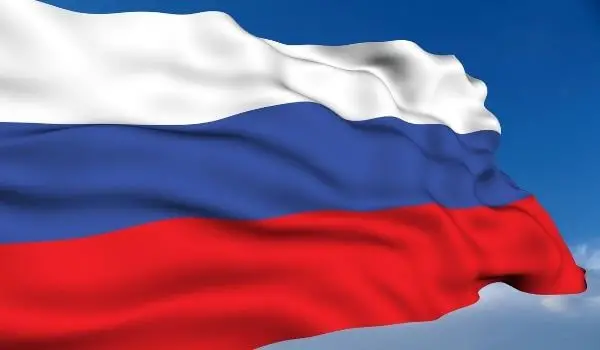It is a common misconception that all Russian last names end in “ov”. In truth, there are many different versions of the endings of a Russian surname. Some of these include -in, -yan, and-vich. See below to find out more about some popular choices!
In Russia, surnames come from three sources: patronymics (surnames taken from the first name of one’s father or mother), occupational names (the occupation of one’s ancestor) and geographical names (a geographic location). This post will explore examples from each category.
Ivanov is the most popular last name and it means the son of Ivan.
Petrov comes in second and as you may have guessed, it follows the same login as it means the son of Peter (stone).
Sidorov completes the list of the top 3 and it means the son of Sidor.
Next on the most popular Russian last names list, we can find Smirnoff. This can signify quiet, peace or gentleness.
Let’s explore some lesser-known Russian surnames:
Kol’chenko signals the profession of the individual. It means smith, taylor or another person who makes shoes.
Gorbachev signifies a highlander so it’s probably not the best choice if you are looking for something neutral!
Lebedev is derived from an area in Russia that was charged with protecting cattle during the winter and as such is a sign of nobility.
Krylov can be associated with trust or friendship.
Pesterev means east man, east dweller or east warrior.
Kabanov falls in the list of the most popular Russian last names and refers to someone with no home at all.
Mishin is linked to Russia as it means a person who has a thick head of hair or a hard head.
Zakharov means one who does not give away secrets or tells many secrets.
Rogatkin is roughly translated as “fatty” in Russian.
Tzarev is a name given to boys who were born in the Trinity season (summer holiday period).
Ovchinnikov means the son of Ovchinnik which means ‘henhouse’ in Russia. It isn’t too farfetched to think that this name could have been passed down from Russia’s rural days.
Tatishchev means “the person from Tatar”, Tatars were the name of ancient Turkic people who originally lived around central Russia.
Bolotin is derived from the Slavic word for “swollen” or “large”.
Vlasov comes from a word meaning “flax” or “linen”.
Pchelkin means one who makes/sells berets (a hat without a brim).
Bulavin means “one who leads bulls”, also used because Bulavins were known for their physical strength.
Mussorgsky is derived from the word “moch” which described poor people or vagabonds.
Vakulin means one who makes/sells wax.
Aksyonov is derived from “aksi” which is the Russian word for a type of stormy wind, this name was popular during Russia’s colonization of Siberia.
Krivokon means sharp corner or edge.
Cherepanov comes from a word meaning “small bread”, it is thought that people with this name were strong, good hunters.
Sviridov comes from a word meaning “green” or “fresh”, people with this name are often stereotyped as kind and naive.
Dubinin means “one who lives in the thick forest”.
Artyukhov means “of the bear”.
Karetnikov comes from a word meaning “one who makes/sells candles”.
Fedotov means “son of Fedor”.
Tikhonov comes from the name “Tikhon” which means “God is gracious”. People with this name are often stereotyped as kind, loving and religious.
Kirillov is derived from a word meaning “one who communes with God”.
Bulatov is derived from the Russian word for “steel”.
Tolkachyova means “one who walks slowly”.
Oreshkov is derived from a word meaning “small wine”.
Vakulenchuk means “one who lives near the balance beam”; it is thought that people with this name were not particularly good or bad, but were somewhere in between.
Kostin comes from a word meaning “one who is of good birth”. People with this name are often stereotyped as snobby.
Russia has many famous historical figures that can play into its naming traditions. For example, if a child is born during a spring month, their name could be derived from Orthodox saints who were also born at that time of the year. A popular example of this is Nevsky, a 12th-century prince who is highly thought of in Russia.
Russia also has its fair share of famous literary works that it draws names from. Fyodor Dostoyevsky had many great books with characters like Raskolnikov (Crime and Punishment) and Porfiry Petrovich (The Brothers Karamazov).
Tokmakov comes from a word meaning “one who makes fences”.
Bukin means “bear”.
Taranov means “thunder” or “lightning”.
Russia is also the homeland of the world-renowned writer Leo Tolstoy. His most famous books include War and Peace and Anna Karenina both of which feature main characters with last names like Bolkonsky, Rostov, Oblonsky, or Vronsky.
Kurakin comes from a word meaning “one who is wealthy”
Sharonov means “hare”.
Khomyakov means “one who lives near the apple tree”. People with this last name are often stereotyped as quiet, ornery and unfriendly.
Melnikov means “mill maker”, it is thought that people with this name are strong and kind, though stubborn.
Yaguzhinsky means “one who lives near the Yaguzh”, a tributary of the Volga River.
Yakovlev means “one who lives near the stream/brook/river”.
Ipatiev is derived from a word meaning “taken by God” or “chosen by God”.
Kashirin comes from a word that described those who lived near water.
Russia’s family names are rich in history, culture, and tradition. Any Russian surname will speak volumes about its background and roots. However, if Russia’s traditions and famous historical figures did not provide enough insight into its culture, Russia also has a rich history of literature that can be looked at for more detailed information. Russia’s family names are unlike any other in the world and give us insight into Russia itself.
- 72 Car Names - November 9, 2021
- 40 Yellow Car Names - November 9, 2021
- 56+ Silver Car Names - November 5, 2021
